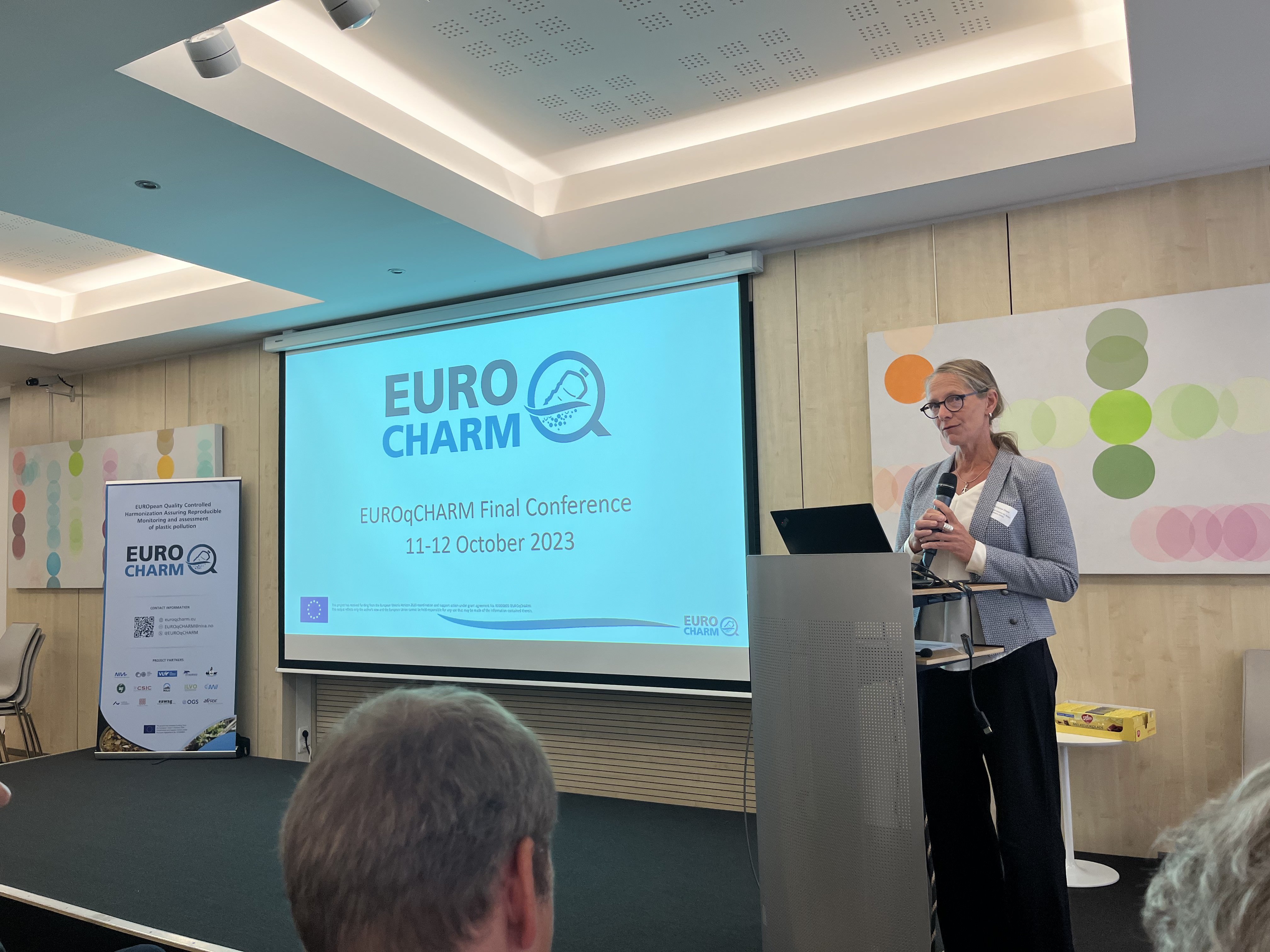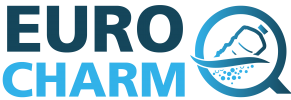General EUROqCHARM Final Conference: project accomplishments, collaborations, influence and the way forward
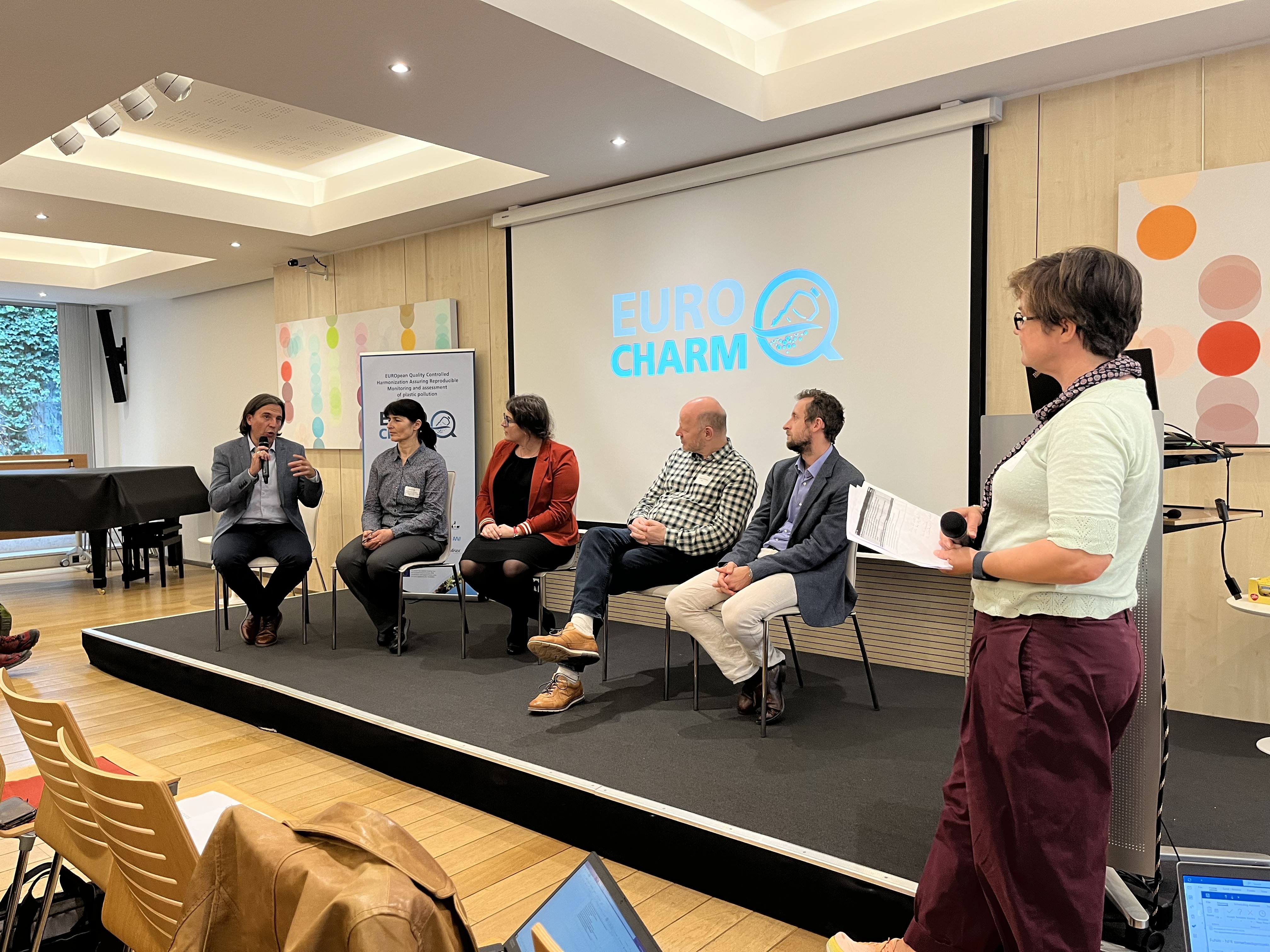
On 11th and 12th October, EUROqCHARM held its Final Conference with participation of all the consortium partners, members of our Scientific Advisory Board, and a broad representation of stakeholders from the European and global plastic litter monitoring community. After working almost exclusively online these past years, the meeting at the Norwegian House in Brussels was only the second time the entire consortium came together, and so we made sure it was an impactful meeting. And what a success! The participants and speakers in attendance represented EU and international policy bodies, assessment and monitoring agencies, analytical companies and instrument makers, representatives from the plastics industry, the EUROqCHARM consortium partners, and countless interested researchers and experts.
“EUROqCHARM succeeded in broadening to a global focus and bringing the right people together here at this final conference.”
- Georg Hanke, European Commission’s Joint Research Centre, Chair of the MSFD Technical Working Group on Marine Litter
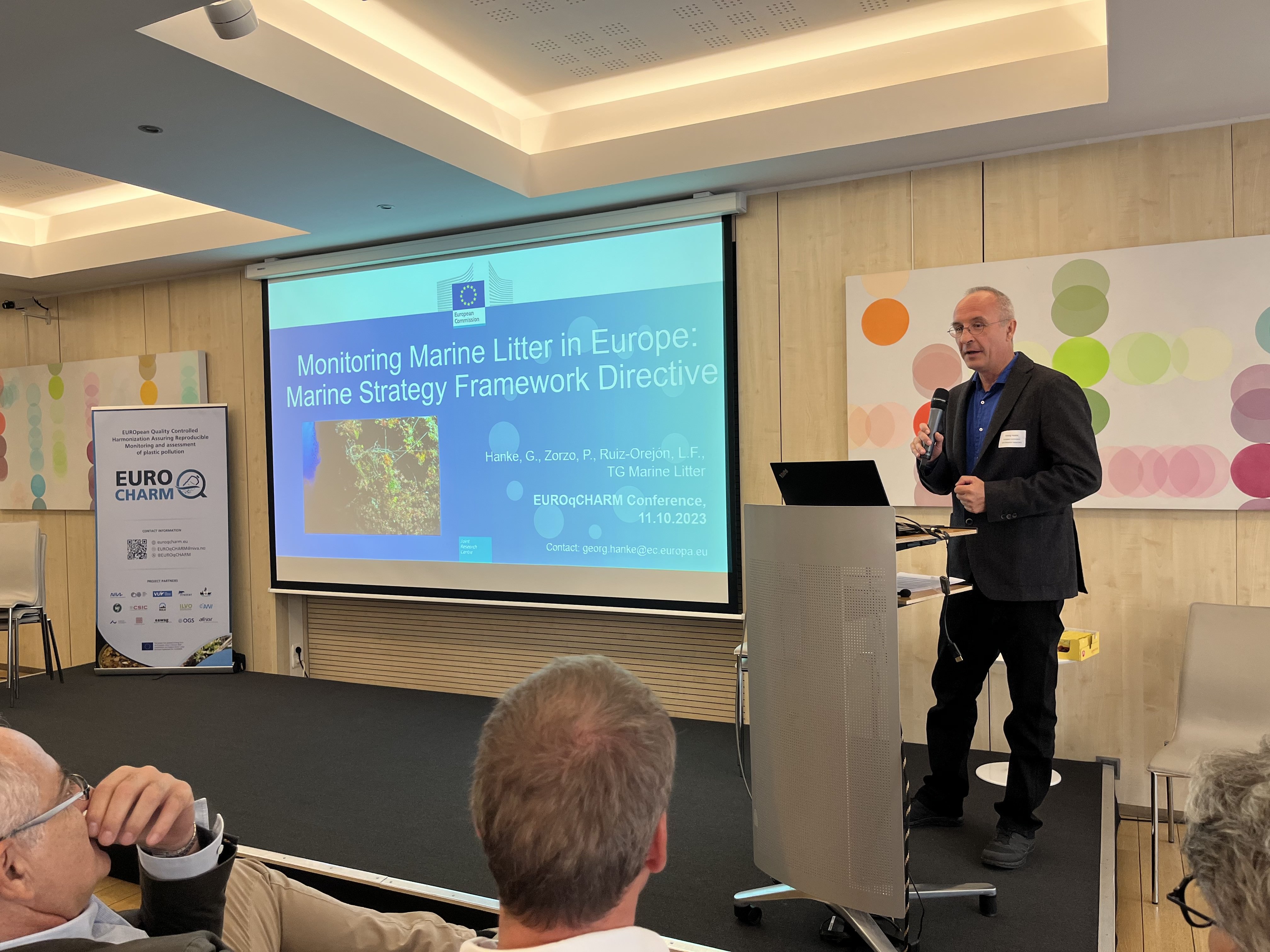
With the first day focusing on science to policy and policy to science, we explored what EUROqCHARM has meant and could potentially mean in the future for the European policy and policymakers in the room with presentation and two lively round table discussions. The first round table centred around the question: “How can EUROqCHARM’s work impact EU policy and Green Deal?”, and the second posed the question: “How have EUROqCHARM’s harmonisation efforts supported international monitoring?”.
“EUROqCHARM has addressed the challenge of reaching out with its results to the policy sphere by actively engaging with the MSFDs Technical Working Group on Marine Litter” stated Papadoyannakis from DG Environment. The panellists all agreed on the importance of harmonisation in reaching the targets of the EU Green Deal regarding the reduction of plastic pollution as part of the Zero Pollution Action Plan. François Galgani (Ifremer, EUROqCHARM WPL) even concluded that “Harmonisation is the MAIN challenge to start tackling the litter problem.”
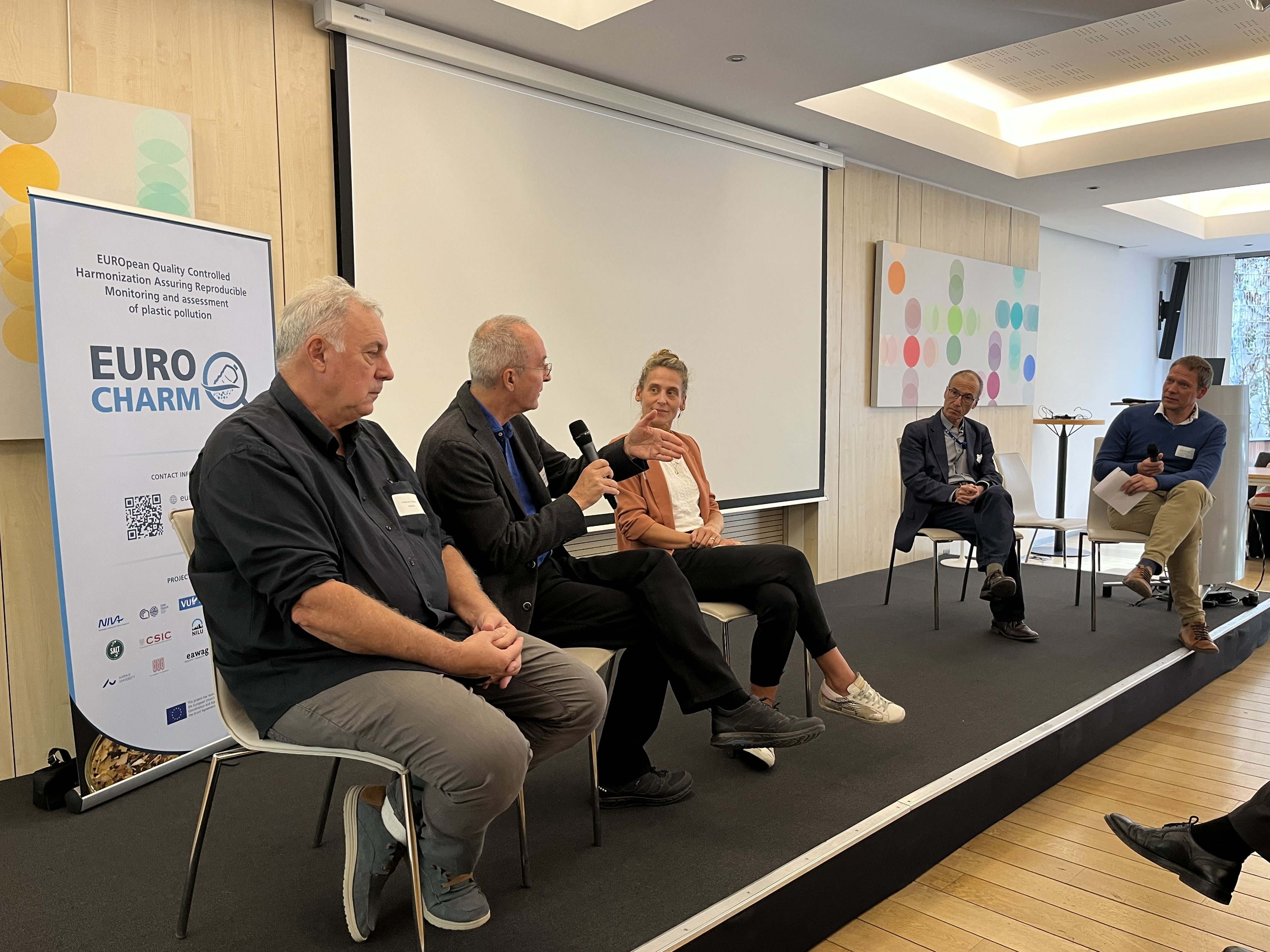
The second conference day focused further on EUROqCHARM’s extensive work and impact, and gave us a chance to listen to what people in the monitoring and analytical sector had to say. The project´s impact was summarised in advance in an overview article that was distributed to all attendees and will soon be available on the EUROqCHARM website. Some main points that were mentioned again and again throughout the presentations and round table discussions, both by partners and stakeholders, was the importance of the analytical concept framework for Technological Readiness Levels (TRLs) in how to think about advancing and harmonising monitoring methods, and the need for interlaboratory studies as the one carried out during the project. The project results and outcomes were referred as “eye-opening” numerous times. Another very important tangible project output are the microplastic-containing soda tablets developed as reference materials for analytical quality control, which are already available on the market.
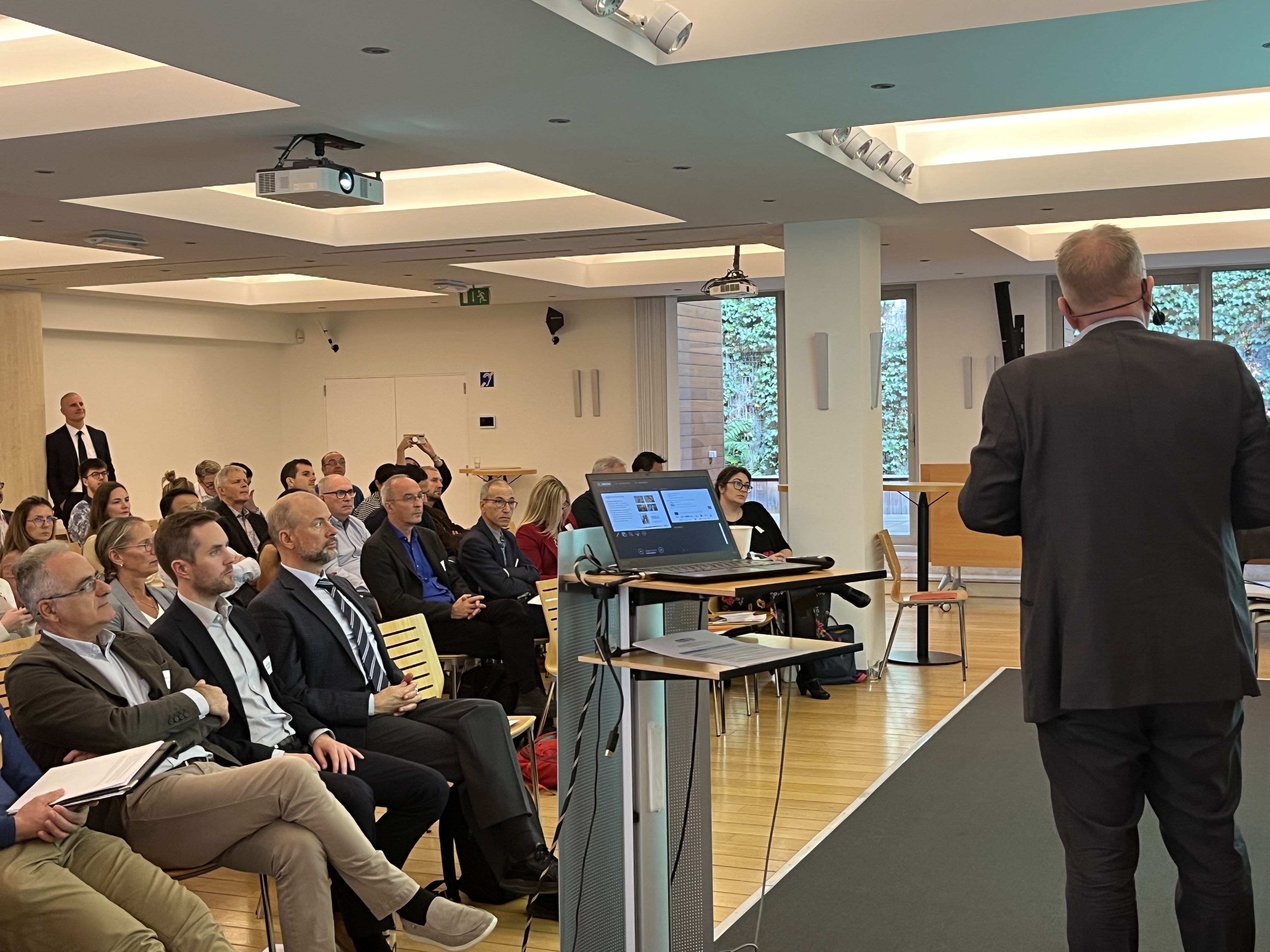
The EUROqCHARM project’s Final Conference wrapped up by looking at the way forward. This specific project might be finished, but the work of the project most definitely is not. One of the main tasks ahead is ensuring the legacy of EUROqCHARM lives on, and to continue the uptake of the project outputs, within and outside of Europe. We want to further support the integration of the TRL approach and best practice across Regional Action Plans, continue the expanding community through capacity building and knowledge transfer, support synchronisation of monitoring data and lift harmonisation to a global level, and expand the EUROqCHARM community focusing on plastic pollution monitoring.
In summary, we can look back at a successful closure of the project, bringing together partners and stakeholders to go into conversation on what this project has achieved and what more is needed in the future. The end of the EUROqCHARM project is therefore only a starting point for the road ahead.
"Harmonised monitoring will be, regardless the results of the negotiations, a central part of the Global Plastics Treaty."
- Marianne Olsen, Research Director, Norwegian Institute for Water Research
